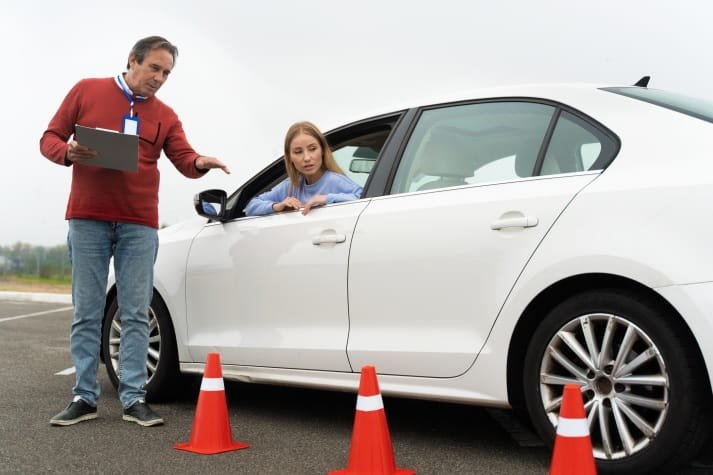As a responsible driver, mastering the art of defensive driving is paramount, not only for your own safety but also for the well-being of fellow road users. Defensive driving encompasses a range of techniques that empower drivers to foresee and avert potential accidents. In this comprehensive guide, we’ll equip you with the knowledge and skills needed to excel in the realm of defensive driving.
Understanding Defensive Driving
Defensive driving is a driving approach cantered on the ability to anticipate and appropriately respond to potential hazards, thereby avoiding accidents. It’s about cultivating awareness of your surroundings, including the actions of other drivers, pedestrians, and cyclists. Defensive driving transcends mere adherence to traffic rules; it involves proactively preventing accidents through a combination of knowledge, skill, and sound judgment.
The Significance of Defensive Driving
Defensive driving holds immense importance in road safety. In 2022, there were 1,194 fatalities resulting from road crashes, marking a 5.8% increase from the previous year. Defensive driving plays a pivotal role in mitigating accident severity, minimizing property damage, and reducing injuries.
Essential Defensive Driving Techniques
To steer clear of accidents, drivers can employ several crucial defensive driving techniques:
Maintaining Safe Following Distance
Keep a safe distance between your vehicle and the one in front, allowing for sudden stops or lane changes.
TScanning the Road Ahead
Continuously scan the road ahead to anticipate potential hazards, including pedestrians, cyclists, and other vehicles.
Using Turn Signals
Utilize turn signals to communicate your intentions to fellow drivers, particularly when changing lanes or making turns.
Avoiding Distractions
Stay focused by refraining from distractions such as eating or adjusting the radio while driving.
Adjusting Speed
Adapt your speed to match prevailing road conditions, be it due to weather, traffic, or construction zones.
Common Driving Errors to Avoid
Several common driving mistakes pose risks to all road users:
Tailgating:
Following too closely behind the vehicle in front can lead to rear-end collisions.
Speeding:
Excessive speed reduces reacƟon Ɵme and exacerbates accident severity.
Failing to Yield:
Ignoring the right of way can result in accidents, especially at intersecƟons.
Distracted Driving:
TexƟng or using a phone while driving is not only illegal but also a potenƟal cause of accidents.
Aggressive Driving:
Aggressive behaviors like cuƫng off other drivers can escalate into accidents or road rage incidents.
Learning Defensive Driving
Acquiring defensive driving skills is a criƟcal step for all drivers. Here’s how you can master these techniques:
Take a Defensive Driving Course:
Enroll in a defensive driving course to acquire essential skills and knowledge for accident prevention.
Practice Defensive Driving Techniques:
Consistently practice skills like scanning the road ahead, maintaining a safe following distance, using turn signals, and avoiding distracƟons.
Stay Informed on Traffic Laws:
Familiarize yourself with traffic laws and regulations to anƟcipate potential hazards and avert accidents.
Prioritize Rest:
Ensure you are well-rested, as Ɵred drivers are prone to mistakes and have slower reaction times.
Benefits of a Defensive Driving Course
Enrolling in a defensive driving course offers numerous advantages:
Improved Driving Skills:
These courses enhance your ability to anƟcipate and avoid potential hazards.
Lower Insurance Rates:
Many insurance providers offer discounts to course graduates.
Reduced Fines and Points:
Some states permit drivers to reduce fines and points on their record through compleƟon of a defensive driving course.
Defensive Driving for Different Vehicle Types
Defensive driving techniques vary depending on the type of vehicle you operate: Cars: Maintain safe following distances, scan the road ahead, and use turn signals. Motorcycles: Wear protecƟve gear and remain vigilant about your surroundings. Commercial Vehicles: Be aware of blind spots, maintain a safe following distance, and adhere to traffic laws.




